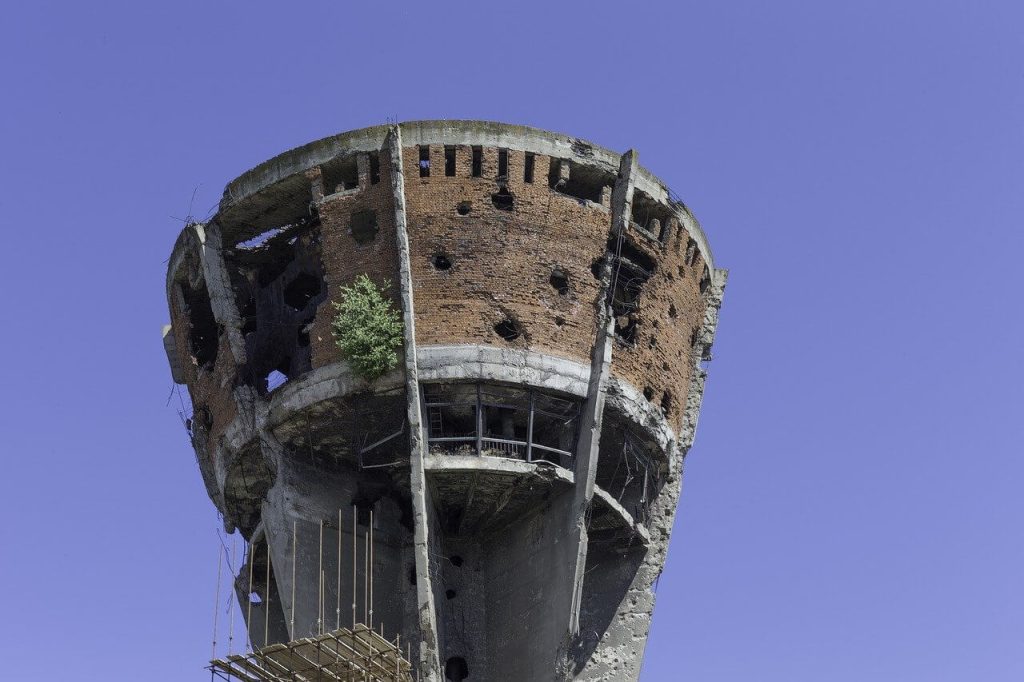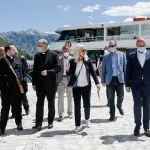After being published back in April this year, the book „Cultural Identity of Vukovar – Contribution to Investigating Heritage and Successors“, was presented this Wednesday in Vukovar. As Ivo Pilar Social Research Institute writes on its website the book was published in cooperation with the Vukovar State Archive, so it was only suitable that the first book presentation was held in Vukovar at the videoconference hall of College Of Applied Sciences „Lavoslav Ružička“ (named after a famous Croatian chemist whose work is awarded a Nobel Prize). In addition, the event marked International Archive Day.
The book was edited by Dr. Mateo Žanić and Petar Elez, and the presentation, alongside editors, saw scientific experts Dr. Dražen Živić, Mirela Hutinec, and Dr. Domagoj Tomas talks about the book.
„Fast events triggered by globalization process and information revolution which paradoxically lead to today’s societies being fiercely occupied with the meaning of past, and preserving its valuable traces. In that context, there is a spreading interest for heritage that holds an important component to understand the relationship between the past and present“, says the editorial introduction of the book.
The editors went on to explain how „the city proved to be futile to interpret the meaning of heritage and its contribution to cultural identity,“ and the editors wanted to present various aspects of Vukovar’s cultural heritage.
Apart from editors Žanić (who wrote a chapter „Layers of memories and material heritage in modern-day Vukovar) and Elez (author of the chapter „State archive in Vukovar and development of archive service in Vukovar-Srijem County“), the book features eight more authors. Ivan Rogić (Whose Heritage? Who is the successor?), Dražen Živić (on Vukovar’s feudalists), Vlasta Novinc („Danube, food, Corso“), Dragana Drašković (on the cultural life of Borovo Selo), and more by Dragan Damjanović, Toni Roca, Ivana Bendra and Ivan Hubalek.
With these broad presentations of culture and heritage in Vukovar, editors hope this book will encourage further research as they are aware this is certainly not the final word on these interesting questions and issues.
„As editors, we are aware that the book does not deal with topics that concern different social groups that left their trace in Vukovar end enrich the history of the city. We hope that future editions that will deal with this topic expand the reach of issues and help us to realize better what do we inherit from the past and why is that important“, concludes the introduction of the book.
So far, the book is available only in Croatian, and research that will, as editors say, deal with other social groups in Vukovar is yet to come. Keeping in mind the terrible aftermaths of the war in Vukovar in the 90s and inter-ethnic tensions, further findings on joint cultural contribution to Vukovar may indeed be the enlightenment needed for peaceful cohabitation and development of Vukovar as a perspective city in Croatia.
Speaking of heritage, learn more about UNESCO recognized heritage in Croatia on our TC page.
For more about science in Croatia, follow TCN’s dedicated page.











